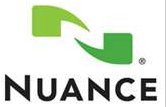 A week ago, Nuance was pleased to announce that it’s “self-service” mobile app developer program had signed over 2,500 in its first 90 days of operation. In the release, the company cited some of the shining stars among the mobile offerings that leverage its speech processing (based on the Dragon Mobile SDK) and predictive text entry (based on the T9 Smart Input Solutions).
A week ago, Nuance was pleased to announce that it’s “self-service” mobile app developer program had signed over 2,500 in its first 90 days of operation. In the release, the company cited some of the shining stars among the mobile offerings that leverage its speech processing (based on the Dragon Mobile SDK) and predictive text entry (based on the T9 Smart Input Solutions).
Today Nuance announced that its developer support program is expanding to China by adding Mandarin Chinese to a set of languages that already supports US and UK English, European Spanish, European French, German, Italian and Japanese for dictation and search, as well as 35 languages for text-to-speech conversion.
While mobile and multimodal Web application platforms (like Appcelerator, AT&T and others ) have attracted in excess of 2 million developers, it has proven much more difficult for mobile speech processing specialists to achieve such lofty levels of registration, but Nuance can claim showcase apps that include the AI-based mobile assistant Siri, Price Check by Amazon, Ask for iPhone, as well as other vital reference and memory aids from Merriam-Webster, Dictionary.com, SpeechTrans, Avantar (AirYell), Sonico (iTranslate), and Catalyst (Taskmind).
Opus Research strongly believes that support of the developer community is key to broadening the appeal of speech-enabled mobile applications. As we’ve noted, the 2,500 folks who registered to use Nuance’s developer resources is a small fraction of millions of folks who who hope to make their mark as mobile developers in the white hot world of mobile gaming, socializing, search, check-ins and e-commerce. Our belief is that it won’t take long for the community’s creativity to turn to multimodal input, and that bodes well for both Nuance, Google and any other platform that showcases accurate speech recognition and bearable text-to-speech rendering as part of the user experience.
Nuance’s formal entry into China expands mobile speech’s global footprint.
Categories: Articles

 NiCE Interactions 2025: Agentic AI, Better Data, and a Whole Lot of Partnership
NiCE Interactions 2025: Agentic AI, Better Data, and a Whole Lot of Partnership  Getting It Right: What AI Agents Actually Mean for Customer Support (Webinar)
Getting It Right: What AI Agents Actually Mean for Customer Support (Webinar)  Beyond the Basics: How AI Is Transforming B2B Sales at TP
Beyond the Basics: How AI Is Transforming B2B Sales at TP  Five9 Launches Agentic CX: Toward AI Agents That Reason and Act
Five9 Launches Agentic CX: Toward AI Agents That Reason and Act